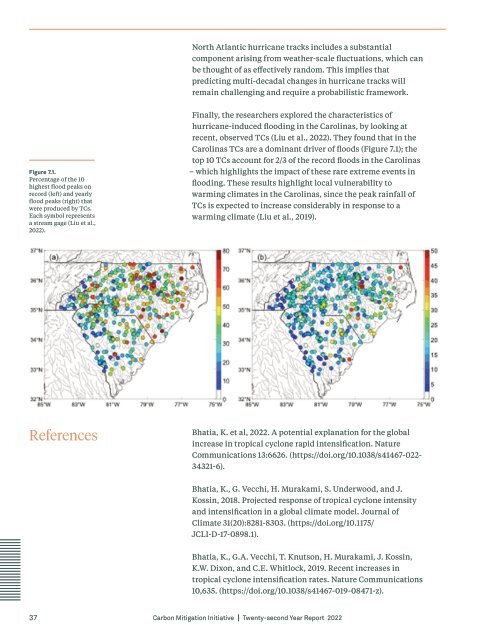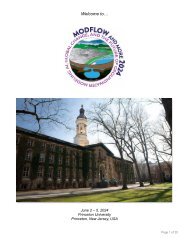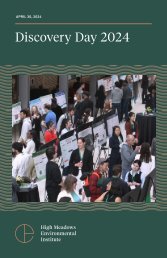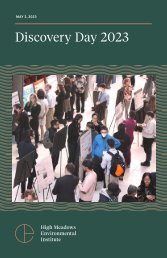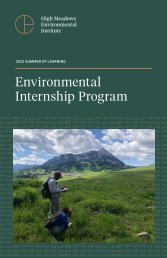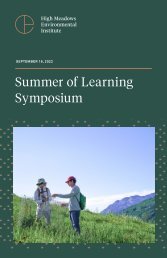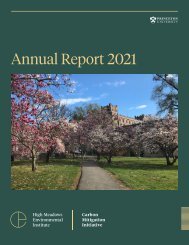CMI Annual Report 2022
Create successful ePaper yourself
Turn your PDF publications into a flip-book with our unique Google optimized e-Paper software.
North Atlantic hurricane tracks includes a substantial<br />
component arising from weather-scale fluctuations, which can<br />
be thought of as effectively random. This implies that<br />
predicting multi-decadal changes in hurricane tracks will<br />
remain challenging and require a probabilistic framework.<br />
Figure 7.1.<br />
Percentage of the 10<br />
highest flood peaks on<br />
record (left) and yearly<br />
flood peaks (right) that<br />
were produced by TCs.<br />
Each symbol represents<br />
a stream gage (Liu et al.,<br />
<strong>2022</strong>).<br />
Finally, the researchers explored the characteristics of<br />
hurricane-induced flooding in the Carolinas, by looking at<br />
recent, observed TCs (Liu et al., <strong>2022</strong>). They found that in the<br />
Carolinas TCs are a dominant driver of floods (Figure 7.1); the<br />
top 10 TCs account for 2/3 of the record floods in the Carolinas<br />
– which highlights the impact of these rare extreme events in<br />
flooding. These results highlight local vulnerability to<br />
warming climates in the Carolinas, since the peak rainfall of<br />
TCs is expected to increase considerably in response to a<br />
warming climate (Liu et al., 2019).<br />
References<br />
Bhatia, K. et al, <strong>2022</strong>. A potential explanation for the global<br />
increase in tropical cyclone rapid intensification. Nature<br />
Communications 13:6626. (https://doi.org/10.1038/s41467-022-<br />
34321-6).<br />
Bhatia, K., G. Vecchi, H. Murakami, S. Underwood, and J.<br />
Kossin, 2018. Projected response of tropical cyclone intensity<br />
and intensification in a global climate model. Journal of<br />
Climate 31(20):8281-8303. (https://doi.org/10.1175/<br />
JCLI-D-17-0898.1).<br />
Bhatia, K., G.A. Vecchi, T. Knutson, H. Murakami, J. Kossin,<br />
K.W. Dixon, and C.E. Whitlock, 2019. Recent increases in<br />
tropical cyclone intensification rates. Nature Communications<br />
10,635. (https://doi.org/10.1038/s41467-019-08471-z).<br />
37<br />
Carbon Mitigation Initiative Twenty-second Year <strong>Report</strong> <strong>2022</strong>


